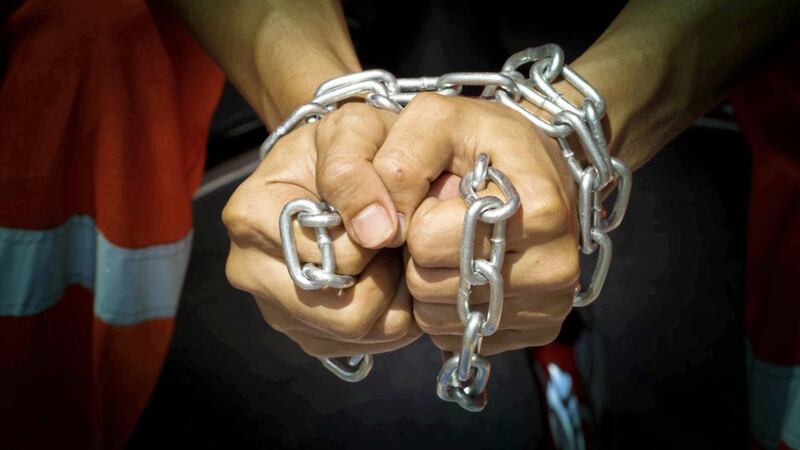IT'S often assumed that slavery is an issue which is only of historical interest. But the reality is that millions of people are still trapped in slavery worldwide.
The National Crime Agency (NCA) said recently that modern slavery and human trafficking is a "significant problem" in Northern Ireland.
The organisation's vulnerabilities director Will Kerr claimed: "We have been shocked by the scale of what we have seen. As you go about your normal daily life there is a growing and a good chance that you will come across a victim who has been exploited.”
The Government has attempted to tackle this by passing the Modern Slavery Act 2015 and Human Trafficking and Exploitation (Criminal Justice and Support for Victims) Act (Northern Ireland) 2015. This legislation creates the offences of slavery, servitude and forced labour and human trafficking.
Businesses with a global turnover of over £36 million now must provide a statement setting out the steps they have taken to ensure that there is no modern slavery in their own business and their supply chain. The statement must:
• Be approved and signed by a director, member or partner of the organisation as applicable;
• Be published on the organisation’s website with a link in a prominent place on the homepage (or made available to anyone who requests it if the organisation has no website); and
• Be updated in each new financial year.
Although there is no prescribed form for the statement, guidance has been created by the Home Office. Failure to comply may result in a High Court injunction to force compliance and any organisation which fails to comply also risks adverse media attention which would undoubtedly result in reputational damage.
While many businesses in Northern Ireland may not meet the £36 million threshold, action is still required as it is likely that they will be asked if they have a statement setting out their approach to tackling modern slavery by those they are providing goods and services to, especially if they are bidding for contracts with larger businesses who themselves have a global turnover above the threshold.
The Government has made it clear that it wants to create a “race to the top” by encouraging all businesses to respond effectively to modern slavery.
Organisations under the threshold should still consider producing a statement as a means of providing assurance to customers.
So what should all organisations be doing?
• Audit business and supply chains for practices relating to modern slavery on a regular basis to ensure compliance.
• Consider how its business model could potentially create risks of modern slavery.
• Publicly commit to compliance with the Act.
• Obtain written confirmation from suppliers of compliance with the Act.
• Ensure that they have adequate policies which promote compliance with the Act and that staff are appropriately trained.
• Ensure that tender documentation and terms and conditions set out the minimum working conditions that suppliers must provide to their staff.
• Ensure that they have adequate whistle-blowing policies which allow employees to report any concerns.
:: Nathan Campbell is a solicitor with Belfast law firm Cleaver Fulton Rankin (www.cfrlaw.co.uk)


